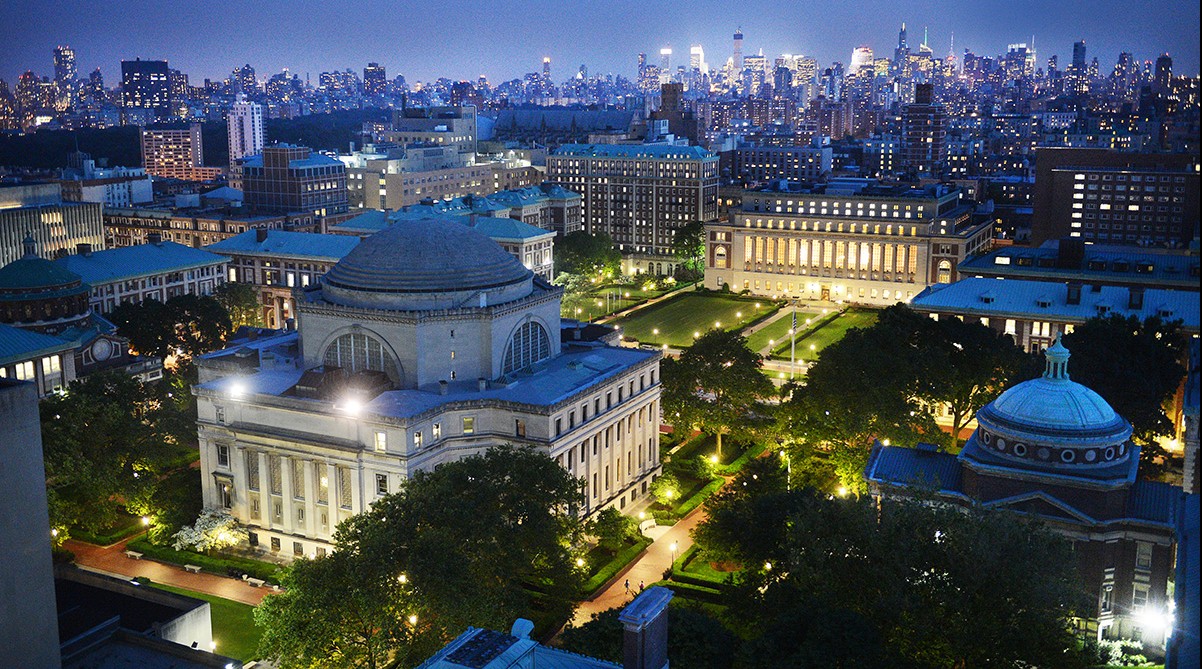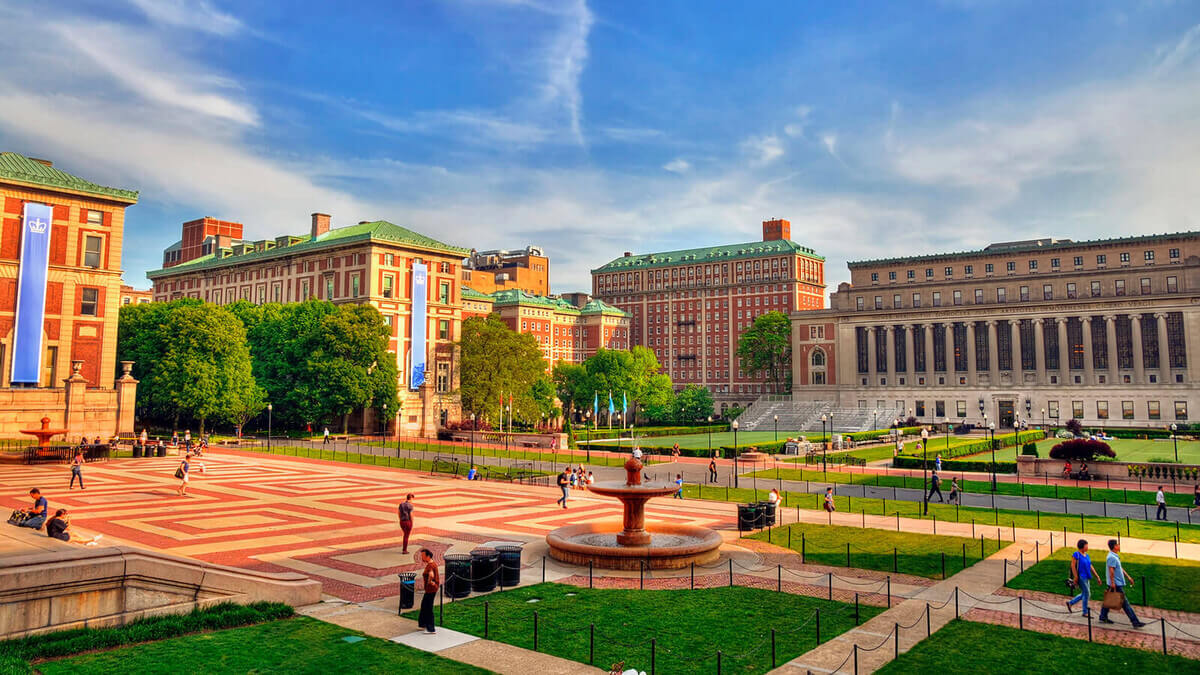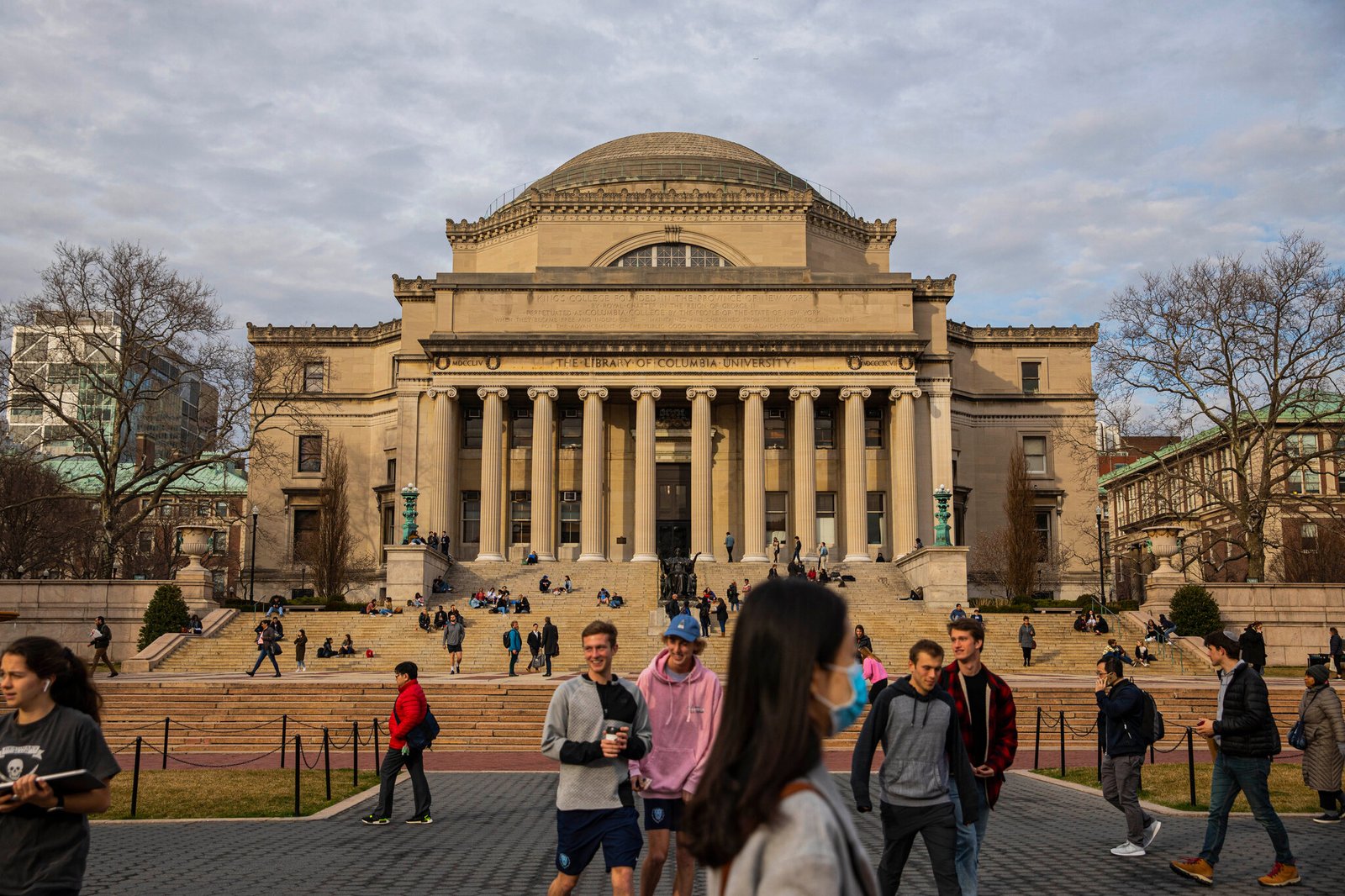Columbia University, located in the bustling heart of New York City, is one of the world’s most prestigious institutions of higher learning. Established in 1754, this Ivy League university has become synonymous with academic excellence, groundbreaking research, and cultural significance. Whether you’re a student considering applying or simply curious about its rich legacy, Columbia offers a wealth of opportunities and inspiration.
History of Columbia University
Columbia University was founded as King’s College in 1754 under a royal charter from King George II. Initially located in lower Manhattan, the university underwent significant transformations over the centuries, becoming Columbia College after the American Revolution and later expanding into a comprehensive university.
From its early days, Columbia has been at the forefront of educational progress. The school played a critical role in shaping U.S. policy and culture, counting Alexander Hamilton and John Jay among its early alumni. Its historic contributions range from pioneering social work education to developing cutting-edge technologies in collaboration with NASA.
Campus Overview
Situated in the vibrant Morningside Heights neighborhood of Manhattan, Columbia University’s campus is an architectural masterpiece. Spanning over 36 acres, the campus is home to iconic landmarks like Low Memorial Library, Butler Library, and Alma Mater, a beloved statue symbolizing wisdom and learning.

The campus isn’t just about beauty; it’s equipped with state-of-the-art laboratories, libraries, and recreational facilities. Sustainability initiatives such as energy-efficient buildings and green spaces underscore Columbia’s commitment to environmental responsibility, creating a balance between tradition and innovation.
Academic Excellence
Columbia University is divided into 20 schools and colleges, including the renowned Columbia College, School of Engineering and Applied Science (SEAS), and Columbia Law School. Its academic programs span disciplines from liberal arts and sciences to business and medicine.
The university is a leader in research, consistently ranked among the top institutions globally. Programs like the Earth Institute and Data Science Institute demonstrate Columbia’s dedication to solving global challenges, from climate change to technological innovation. Students benefit from access to cutting-edge facilities and collaborations with world-class faculty.
Admissions Process
Applying to Columbia University is highly competitive, with acceptance rates typically under 5%. The admissions process evaluates applicants holistically, considering academic achievements, extracurricular involvement, essays, and letters of recommendation.
Prospective undergraduate students should focus on maintaining stellar grades and standardized test scores while demonstrating a passion for learning and leadership. For graduate programs, relevant professional experience and research interests play a crucial role. The key is to showcase authenticity and alignment with Columbia’s values.
Columbia’s Reputation and Rankings
Columbia University consistently ranks among the top universities globally. It holds prestigious positions in fields like journalism, law, and business. The institution is a proud member of the Ivy League, sharing the spotlight with other top-tier universities like Harvard and Yale.

The university’s commitment to innovation and excellence has earned it accolades such as multiple Pulitzer Prizes through its Graduate School of Journalism and numerous Nobel Prizes awarded to faculty and alumni. Its influence extends across academia, government, and industry.
Student Life
At Columbia, student life is as diverse and dynamic as its academic offerings. The university fosters an inclusive environment, welcoming students from over 150 countries. Numerous clubs, organizations, and events cater to various interests, from arts and culture to entrepreneurship and technology.
Residential life ensures that students have a comfortable and engaging experience, with options ranging from traditional dormitories to apartment-style housing. The university’s dining services provide a variety of cuisines, reflecting its diverse community.
Financial Aid and Scholarships
Columbia University is committed to making its education accessible to students from all socioeconomic backgrounds. The university offers a robust financial aid program designed to alleviate the burden of tuition and living expenses for eligible students. In fact, Columbia follows a need-blind admissions process for U.S. applicants, ensuring financial need does not influence admissions decisions.
For undergraduate students, Columbia provides grants, scholarships, and work-study opportunities instead of loans. This means graduates leave with minimal debt. High-achieving students from low-income families can also benefit from programs like the Columbia Commitment, which guarantees full funding for their education. Graduate students can explore fellowships, research assistantships, and stipends depending on their programs.
Applying for financial aid requires submitting the Free Application for Federal Student Aid (FAFSA) and the CSS Profile, alongside necessary documentation. Columbia’s Financial Aid Office supports students throughout this process, ensuring they access all available resources.
Research Opportunities
Columbia University is a powerhouse of research innovation, driving breakthroughs in fields like medicine, engineering, environmental science, and social policy. The university operates more than 200 research centers and institutes, offering students and faculty unparalleled opportunities to contribute to cutting-edge discoveries.
One of the most notable research hubs is the Earth Institute, which addresses global environmental challenges such as climate change, biodiversity, and sustainable development. Similarly, the Zuckerman Institute focuses on neuroscience and mind-brain behavior, blending biology, technology, and psychology.

Columbia encourages student participation in research through programs like the Summer Undergraduate Research Fellowship (SURF) and opportunities to collaborate with renowned faculty. The emphasis on interdisciplinary work ensures students gain a holistic perspective on solving real-world problems.
Notable Alumni
Columbia University’s alumni network is a testament to its far-reaching influence. With over 370,000 graduates worldwide, Columbia has produced leaders, innovators, and creatives across every imaginable field.
Among its notable alumni are U.S. Presidents like Barack Obama and Theodore Roosevelt, demonstrating Columbia’s impact on political leadership. In the arts, Columbia counts figures like Langston Hughes and Kathryn Bigelow among its graduates. The university has also been home to Nobel laureates like Joseph Stiglitz in economics and Richard Axel in physiology.
Columbia’s strong alumni network provides current students with valuable mentorship, internships, and career opportunities. Whether in politics, literature, science, or entertainment, the university’s graduates leave a significant mark on the world.
Columbia University in Pop Culture
Columbia’s iconic campus and academic prestige have made it a favorite in popular culture. Movies such as Ghostbusters and Spider-Man feature scenes filmed on its grounds, highlighting its historical architecture and vibrant urban backdrop. Books and TV shows often reference Columbia as a symbol of intellectual achievement and New York sophistication.
The university’s influence on culture extends beyond its physical presence. Columbia’s faculty and alumni have shaped global narratives, with notable contributions in journalism, film, and literature. Its reputation ensures it remains an enduring figure in popular imagination.
Community Impact
As a neighbor in the heart of New York City, Columbia University prioritizes community engagement. The university collaborates with local organizations, offering resources and programs that benefit the surrounding neighborhoods. Initiatives like the Community Impact Program provide free tutoring, legal aid, and health services to underserved populations in the city.
Additionally, Columbia’s partnerships with public schools and non-profits empower local youth through education and mentorship. The university’s focus on public service reflects its broader mission of using knowledge to address societal challenges.
Athletics and Sports
Columbia University’s athletic teams, known as the Lions, compete in the NCAA Division I Ivy League. While academics often take the spotlight, Columbia’s sports culture fosters school spirit and camaraderie.
Popular sports include basketball, rowing, and fencing, where the Lions have earned numerous accolades. Columbia’s Baker Athletics Complex, located in Upper Manhattan, provides world-class facilities for student-athletes and fans alike.
The university encourages all students to stay active through intramural sports and fitness programs. Whether cheering from the stands or competing on the field, athletics play a vibrant role in campus life.
Future of Columbia University
Columbia University continues to evolve, embracing innovation while honoring its rich history. Recent initiatives focus on expanding global partnerships, fostering diversity, and enhancing its environmental sustainability efforts.
The construction of the Manhattanville campus represents a bold step forward. This state-of-the-art addition houses the Business School, the Lenfest Center for the Arts, and other cutting-edge facilities, promoting collaboration across disciplines.

Columbia’s vision includes strengthening its role as a leader in addressing global challenges. By investing in research, technology, and accessibility, the university is poised to remain at the forefront of education and societal impact.
Conclusion
Columbia University stands as a beacon of excellence in education, research, and community engagement. With its illustrious history, vibrant campus life, and commitment to addressing global challenges, Columbia continues to inspire generations of students and scholars. Whether you’re considering joining its ranks or simply admiring from afar, Columbia’s legacy speaks for itself.
FAQs
1. What is Columbia University known for?
Columbia University is renowned for its academic excellence, particularly in fields like journalism, law, business, and the sciences. Its diverse research initiatives and strong alumni network further cement its reputation as a world-class institution.
2. How competitive is admission to Columbia University?
Admissions to Columbia are highly competitive, with undergraduate acceptance rates around 4-5%. A strong academic record, extracurricular achievements, and compelling essays are crucial for applicants.
3. Does Columbia University offer financial aid to international students?
Yes, Columbia provides need-based financial aid to international students. It reviews applications holistically and offers scholarships, grants, and work opportunities to eligible candidates.
4. What are some iconic landmarks on Columbia’s campus?
Notable landmarks include Low Memorial Library, Butler Library, and the Alma Mater statue. The campus also features modern additions like the Manhattanville campus.
5. How does Columbia contribute to New York City?
Columbia engages with the NYC community through volunteer programs, educational partnerships, and initiatives supporting local development. Its research and public service efforts also address broader societal challenges.

